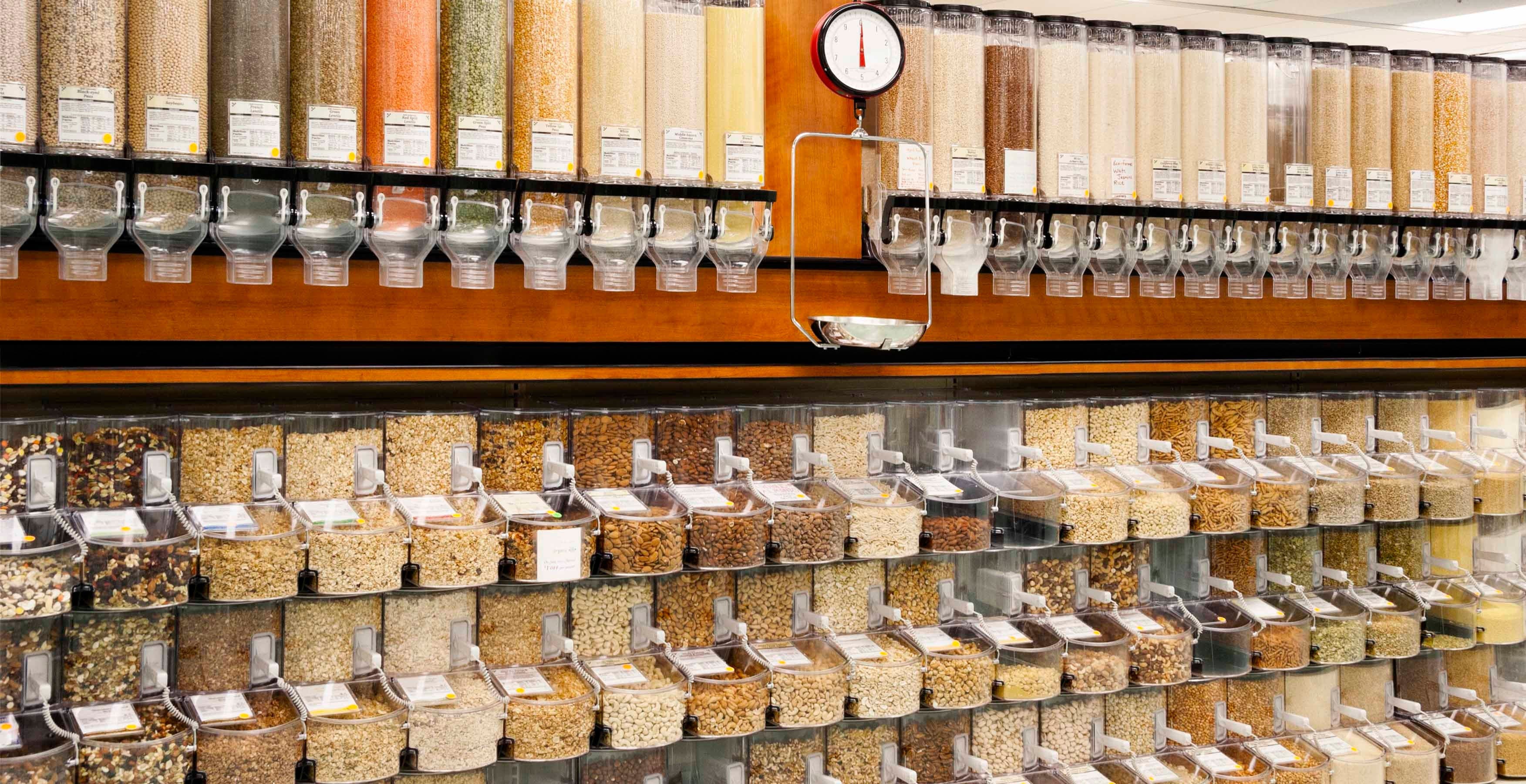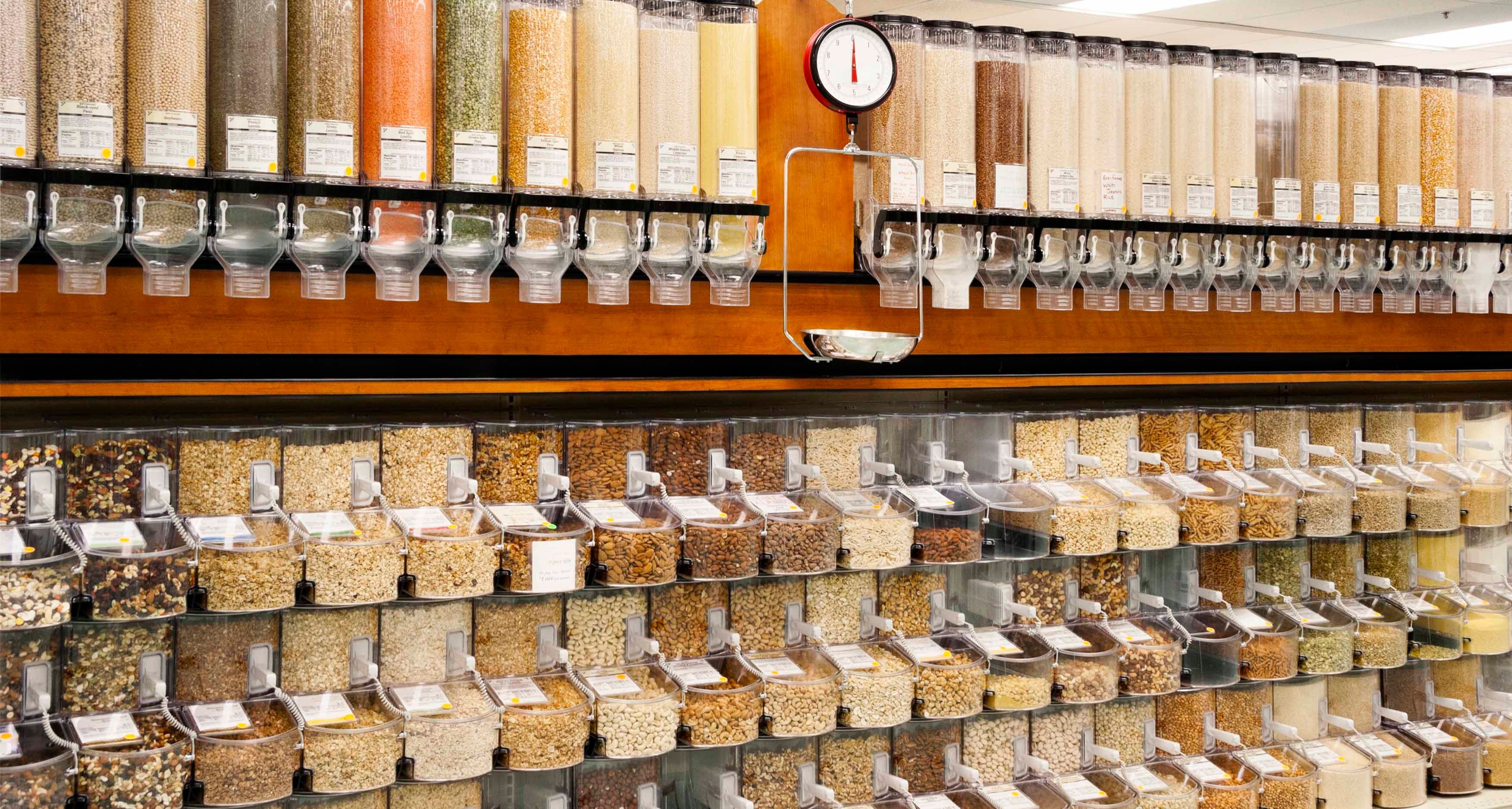

If you haven’t considered buying in bulk, or if you’ve written it off altogether, you may want to think about it again. There are many products that are worth buying in bulk and it’s an easy way to save money and reduce packaging.
“I love buying bulk,” says Meghann Percy, who runs the podcast Kiss That World, which focuses on how to live with less impact.
Why to Buy Bulk
She’s a bulk-buying advocate mainly because she wants to reduce the amount of single-use plastics she brings into her home, but also because she says bulk foods are often less processed, though that’s not always the case.
Buying in bulk is also a great way to save money, she explains.
“When you buy something, you are paying for more than just the part you’re going to eat. If it’s a branded food, you’re also paying for the packaging [or] advertising space on the shelf. If it’s an organic food, you’re helping to pay for the certification and if it’s not local, you’re paying in part for the shipping. The heavier the package, the more the shipping costs. By purchasing in bulk, you can save money because you aren’t paying for individual packaging.”
Buying in bulk is also great because you can buy as little or as much as you like, Percy adds.
“Trouble with portion control on nuts? You can buy a single serving. Don’t want to go to the store every week for staples like rice and beans? Stock up.”
What to Buy
So what can you buy in bulk? The better question might be what can’t you buy in bulk.
Percy shares this list of go-to bulk items:
- Dry goods such as beans, rice, quinoa, cereal
- Flours and oats for baking
- Oils for salad dressing and cooking
- Nut butters
- Dried fruits
- Nuts and trail mix
- Candy and chocolate
- Pastas and soup mixes
- Coffee and tea
- Spices
- Dehydrated foods
- Pet food and treats
- Laundry detergents and soaps
Gemma Lacey, a representative of Three Foragers Bee Co., a Canadian raw honey company, also recommends buying honey in bulk because when stored correctly, honey never goes bad.
“Buying a few kilograms of honey will keep you going for months or years to come,” Lacey says.
What to Keep in Mind
Percy recommends taking note of how busy the store is, as some things get stale quickly.
“There are no dates on the bulk bins, so you are taking the chance that a cereal or chip may be losing its crunch.”
It’s also important to remember there’s no ingredient list you can read at home after buying something in bulk, she says, so you may want to snap a photo of the list at the store if you might need to know later.
Kelli Shallal, a personal trainer and registered dietitian based in Phoenix, Ariz., advises consumers with food allergies or sensitivities to avoid the bulk bin. “There is tons of cross-contamination risk, so it isn’t worth the exposure!”
Shallal also notes that meat and fish can be cheaper in bulk, but you’ll have to ensure that you can use it all or have a freezer plan so it doesn’t spoil.
Storage
“You want clean, dry and airtight containers for storing bulk foods,” Percy says. “Things like beans and rice can stay edible for a long, long time as long as the containers are stored in a dry cupboard. I use large glass canning jars. You can use a label maker to label each item, but if you store in glass many items are immediately recognizable.”
For honey, Lacey says, “you can store it at room temperature. Some people put it in their freezer and it turns nice and creamy when thawed.” Remember to “make sure that the lids are tightly sealed, as honey likes to absorb odours and moisture. Also be sure to avoid leaving it in overly hot locations.”
Pro Tips
- Reusable Containers: “Just like reusable grocery bags, there are smaller, lighter reusables for bulk,” Percy says. “Set yourself up with some grain bags [or jars] and save the planet on some plastic. Write the ‘tare weight’ or the weight of the empty bag or container on [it] so that it can be easily subtracted at the cash register. You want to pay for the food not the bags or else you’re missing the point!” Note that some stores may need to approve the containers or bags you’re using first, so just check their policy.
- Shopping 101: Don’t forget the bin number! Make note of it for each item you buy to help the cashier, she says.
- Glass Jars: “Once you get your groceries home, transfer them from the bulk bags into glass jars,” Percy recommends. “Your pantries will look Zen and clutter-free. … Having a package-free pantry is relaxing and beautiful. It sounds crazy, but opening a cupboard and not seeing 15 boxes full of words and colours enticing you to read them does make a difference.”
